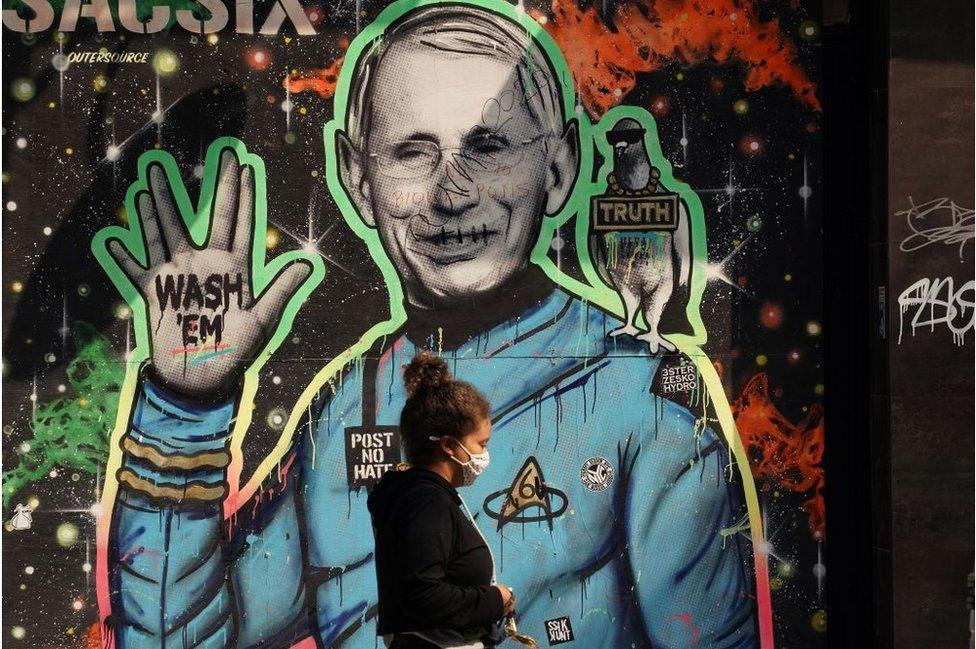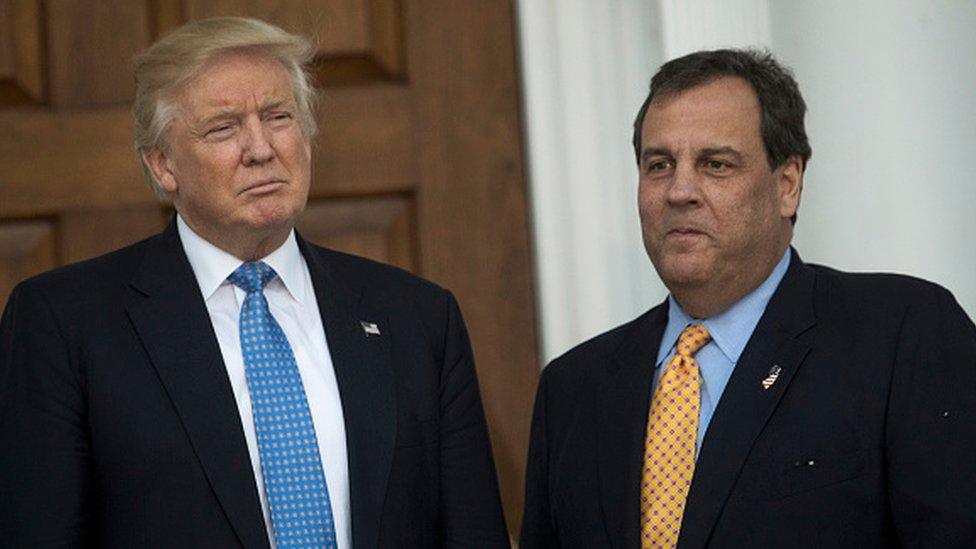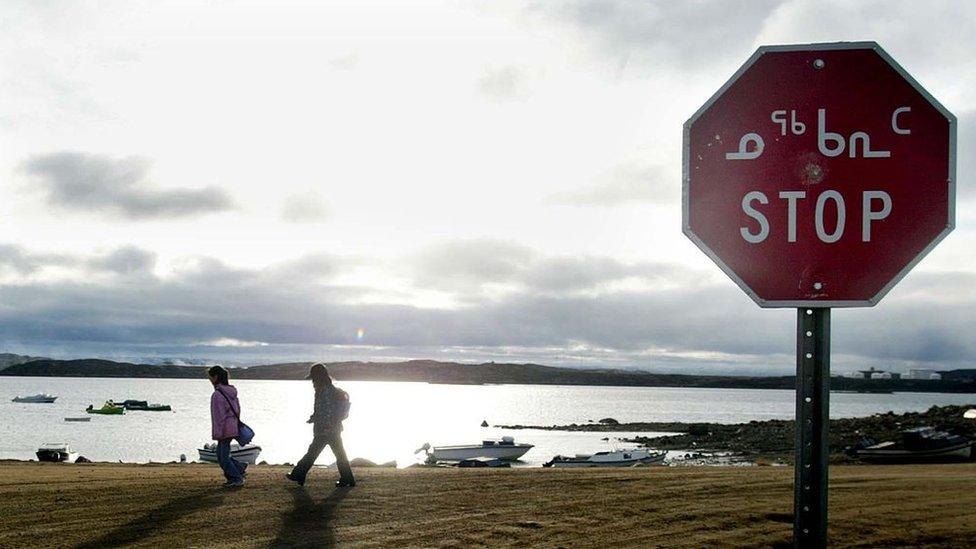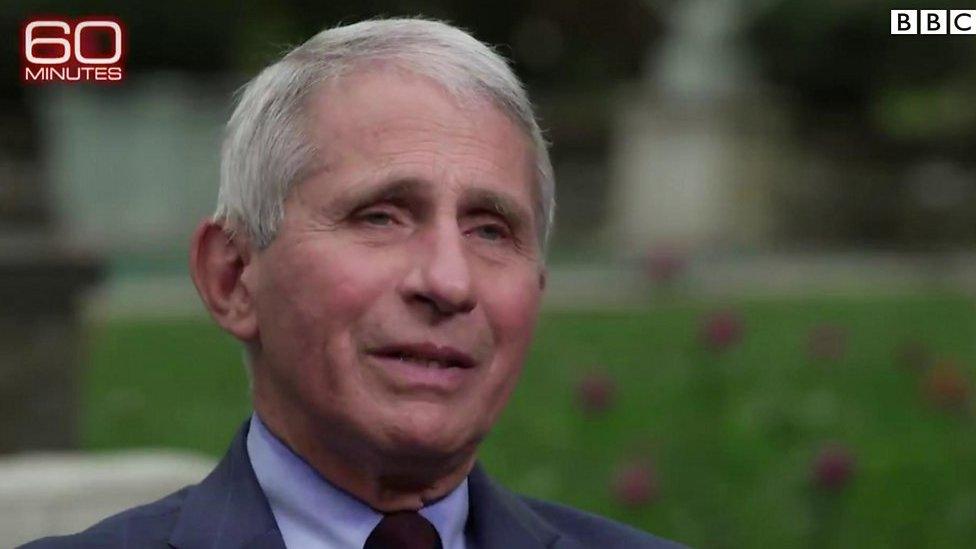Coronavirus: New Covid-19 cases rising rapidly across US
- Published
Fauci: 'Absolutely not' surprised Trump got Covid-19
New coronavirus infections are growing rapidly across the US, experts say, with new hospital admissions also increasing around the country.
Nearly 70,000 new cases were recorded on Friday - the highest number of new infections seen in one day since July.
Cases have been trending upward for 48 states over the past week.
Only two states, Missouri and Vermont, are recording numbers that are improving.
Dealing with the pandemic has continued to be a central issue in the US election.
Despite the uptick in infections - and recovering from Covid himself earlier this month - President Donald Trump is still traveling the country for large in-person campaign rallies.
At an outdoor event in Nevada on Sunday, Mr Trump said his Democratic opponent Joe Biden "will surrender your future to the virus".
"This guy wants to lockdown. He'll listen to the scientists," he said. "If I listened totally to the scientists, we would right now have a country that would be in a massive depression."
Many of Mr Trump's supporters do not wear masks or practice social distancing at the rallies, and there have been warnings against large gatherings from local health officials.
A Biden spokesman called Mr Trump's remarks "the polar opposite of reality" and blamed the country's recession on the president.
On Monday, Mr Trump denounced top infectious disease expert Dr Anthony Fauci as "a disaster" and claimed that more people would have died if he had listened to the respected researcher.
Dr Fauci told CBS News earlier that he was not surprised the president had caught coronavirus, given his reluctance to practice safe techniques.
"Fauci's a disaster," the president said in a campaign phone call that was overheard by reporters. "He's been here for 500 years," he said, adding: "People are tired of hearing Fauci and all these idiots."
Mr Trump, who has reportedly had a tense relationship with Dr Fauci since March, called him "a nice guy", but said he would have fired him if not for the negative press that would result.
What are the latest numbers?
In the US, there have been around 8.1 million coronavirus infections and over 219,000 deaths. Across the world, over 40 million cases have been recorded.
Cases in the US dipped to around 34,000 per day by early September, but are now averaging around 55,000 per day.
On Friday, the US nearly topped 70,000 cases in one day, which would have beat the single day record for new cases set in July.
Ten states on Friday hit their all-time high for new cases reported in a single day: Colorado, Idaho, Indiana, Minnesota, North Dakota, West Virginia, Wisconsin, Wyoming, New Mexico and North Carolina.
On Saturday, new cases fell to over 57,000. On Sunday, the daily infection rate fell again to over 48,000.

Mr Trump has been holding large campaign rallies
As infections rise, hospital admissions have also risen in 39 states over the past two weeks. Wisconsin, a crucial presidential swing state, is among the hardest hit, with nearly 10% of the state's hospital beds currently occupied by Covid-19 patients.
The state has now erected a field hospital on the grounds of the Wisconsin State Fair Park to serve as an overflow facility for hospitals.
Experts say the death toll is not expected to rise as rapidly as it did in the beginning of the pandemic, as many of the new cases are in young people who are more likely to survive the disease caused by the virus.
Health officials warn that infections are likely to get worse during colder months, when people tend to congregate indoors more often.
In his interview with the CBS 60 Minutes programme, Dr Fauci said the situation would need to get "really, really bad," before he would advocate for a national lockdown.
"First of all, the country is fatigued with restrictions," said Dr Fauci, who has led the National Institute of Allergy and Infectious Diseases since 1984 and is a member of the White House coronavirus taskforce.

A mural of Dr Fauci, who has become a household name amid the pandemic
"So we want to use public health measures not to get in the way of opening the economy, but to being a safe gateway to opening the economy."
He added: "Put 'shut downs' away and say, 'We're going to use public health measures to help us safely get to where we want to go'."
- Published16 October 2020

- Published19 October 2020

- Published19 October 2020
